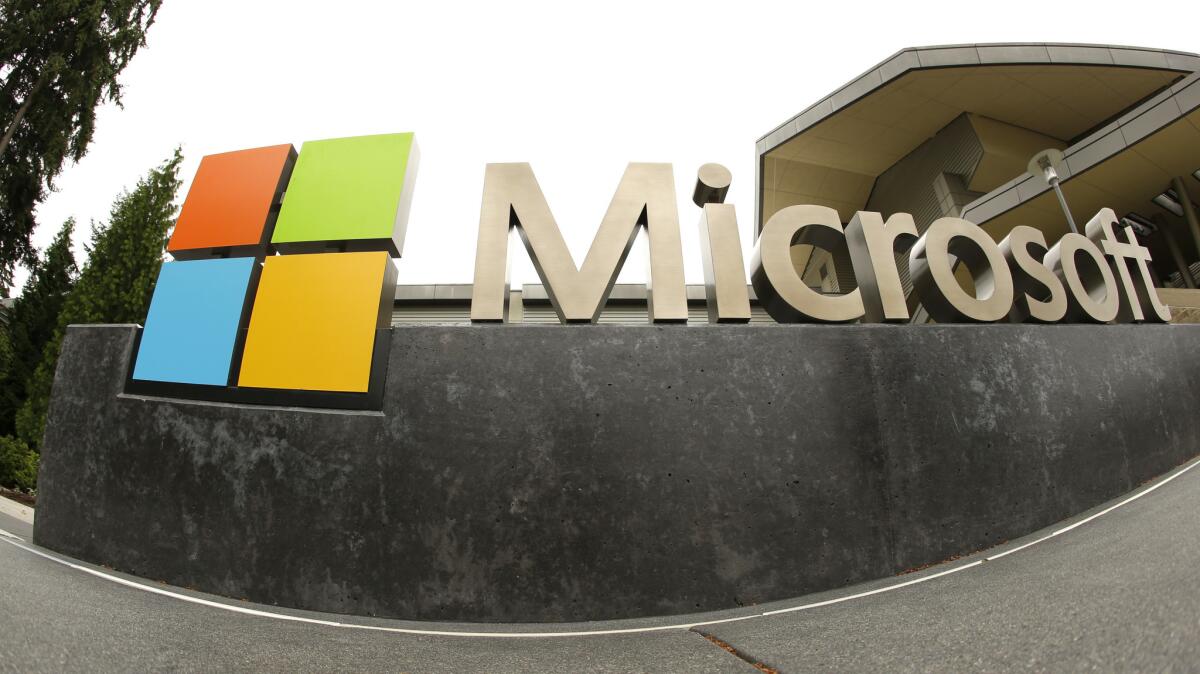Supreme Court to decide if U.S. agents can obtain emails stored overseas by Microsoft

Reporting from Washington — The Supreme Court said Monday it has agreed to hear an urgent Justice Department appeal and decide whether emails that are stored overseas can be obtained by government investigators armed with a search warrant.
Microsoft Corp. has defied federal authorities since 2013 by refusing to comply with court orders to turn over emails that it decided to maintain on a server in Dublin, Ireland.
Under federal law and the U.S. Constitution, investigators may obtain private records—and in this instance, emails—if they obtain a search warrant by showing a magistrate they have “probable cause” to believe someone is engaged in a crime.
But when federal agents presented a warrant at Microsoft’s headquarters in Redmond, Wash., seeking emails of a suspected drug trafficker, the company refused. It said the emails had been “migrated” to a data center in Ireland. And its lawyers argued that the Stored Communications Act of 1986, the federal law which regulates electronic records, does not extend beyond the United States.
To the surprise of the Justice Department, a three-judge panel of the 2nd Circuit Court in New York agreed with Microsoft. The judges said that when Congress wrote the law in 1986, it did not “envision the application of its warrant provisions overseas.”
Prosecutors called the decision unprecedented, dangerous and wrong, but the full 2nd Circuit split 4-4 on the issue last year.
The U.S. Justice Department, supported by 33 states, urged the Supreme Court in June to hear the case and reverse the 2nd Circuit’s ruling.
“Hundreds, if not thousands, of investigations of crimes—ranging from terrorism to child pornography to fraud—are being or will be hampered by the government’s inability to obtain electronic evidence,” Deputy Atty. Gen. Jeffrey Wall said in the appeal. “And the opinion cannot be defended as a protection of privacy,” he said, since agents had obtained a search warrant based on probable cause.
“The decision protects only criminals whose communications are placed out of reach of law enforcement officials because of the business decisions of private providers,” he said.
The appeal does not reveal the identity or location of the defendant, but government lawyers said his conduct and his emails were limited to inside the U.S. The Justice Department said the warrant “requires Microsoft to disclose communications in the United States. And Microsoft’s U.S.-based employers could make the disclosure without leaving their desks.”
Microsoft had urged the court to steer clear of the case. Its lawyers said Congress in 1986 aimed to protect the privacy of electronic communications, and it “said absolutely nothing about applying the act to reach communications overseas.” If the law needs to be updated, Congress, and not the courts, should do it, the company said.
The court will hear the case, United States vs. Microsoft, early next year.
It is the rare case involving a government search that does not turn on the 4th Amendment and its protection against unreasonable searches. Instead, the legal dispute turns entirely on the 1986 law.
Google and Yahoo had also challenged subpoenas, but after losing before several judges, Google “has reversed its previous stance and informed the government it will comply” with warrants, the Justice Department said in September.
On Twitter: DavidGSavage
ALSO
Republican lawmakers’ troubles deepen as Koch donors and Bannon take aim
Court limits government warrant for data about anti-Trump website
More to Read
Get the L.A. Times Politics newsletter
Deeply reported insights into legislation, politics and policy from Sacramento, Washington and beyond. In your inbox three times per week.
You may occasionally receive promotional content from the Los Angeles Times.











